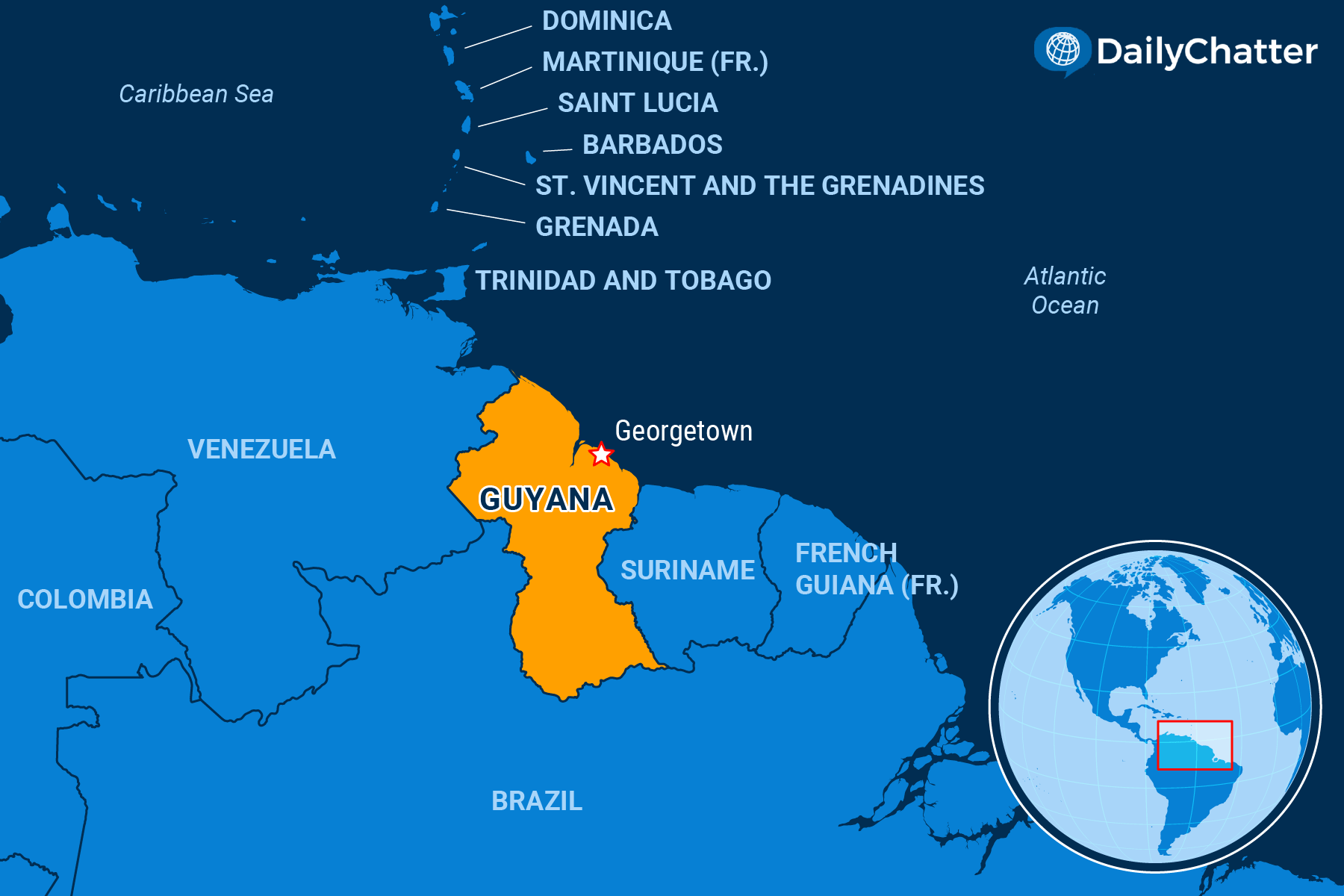
The World Today for September 19, 2023
NEED TO KNOW
The Black Gold Rush
GUYANA

A remarkable economic experiment is occurring now in Guyana, one of the poorest countries in the Western Hemisphere.
Oil giants like ExxonMobil, the China National Offshore Oil Corporation, and TotalEnergies are now bidding on the rights to drill for black gold off the small South American country’s coast, reported Oilprice.com.
Discovered in 2015 but not yet fully opened to energy companies, Guyana’s offshore reserves could hold 14 billion barrels of oil and 32 trillion cubic feet of natural gas, more than enough to dramatically reverse the former British colony’s fortunes. The country of fewer than 800,000 people is on track to becoming the fourth-largest offshore oil producer in the world.
The country – still technically impoverished – now has the world’s most booming economy, wrote Bloomberg. Growth is expected to hit an eye-popping 38 percent this year after expanding 62 percent in 2022. What’s more, the country is in the early stages of its boom.
“Not only are we going to be a major oil producer,” said Guyanese President Irfaan Ali recently at an unrelated event in Washington, DC, according to Reuters, but “soon we’ll have a national gas strategy and that itself will bring tremendous benefit to the country.”
Guyanese folks are excited. Oil revenues have poured $1.6 billion into the country’s coffers. The government has initiated 12 new hospitals, seven hotels, schools, two new highways, a deep-water port, and energy production facilities that will allow officials to cut utility bills in half, explained the Associated Press.
Officials at the US Agency for International Development (USAID) have raised concerns about that much money flowing through the developing country so quickly.
In a report issued two years ago, USAID officials noted how a slim no-confidence vote in 2018, fraud, and other corruption allegations surrounding the 2020 election of Ali, as well as the general disempowerment of Guyana’s poor population, raised questions about the country’s capacity to manage its newfound wealth.
Ali and others also know they must move quickly not only to demonstrate that they can harness their country’s wealth to benefit its people, but also to take advantage of high oil prices and demand now before the market plunges or the international consensus turns even more against fossil fuels, noted the BBC. Signatories to the 2015 Paris Climate Accords, for example, have pledged to decrease greenhouse gas emissions that cause climate change to net zero by 2050.
It’s not a bad problem to have.
To read the full edition and support independent journalism, join our community of informed readers and subscribe today!
Not already a subscriber?
If you would like to receive DailyChatter directly to your inbox each morning, subscribe below with a free two-week trial.
Support journalism that’s independent, non-partisan, and fair.
If you are a student or faculty with a valid school email, you can sign up for a FREE student subscription or faculty subscription.
Questions? Write to us at [email protected].
